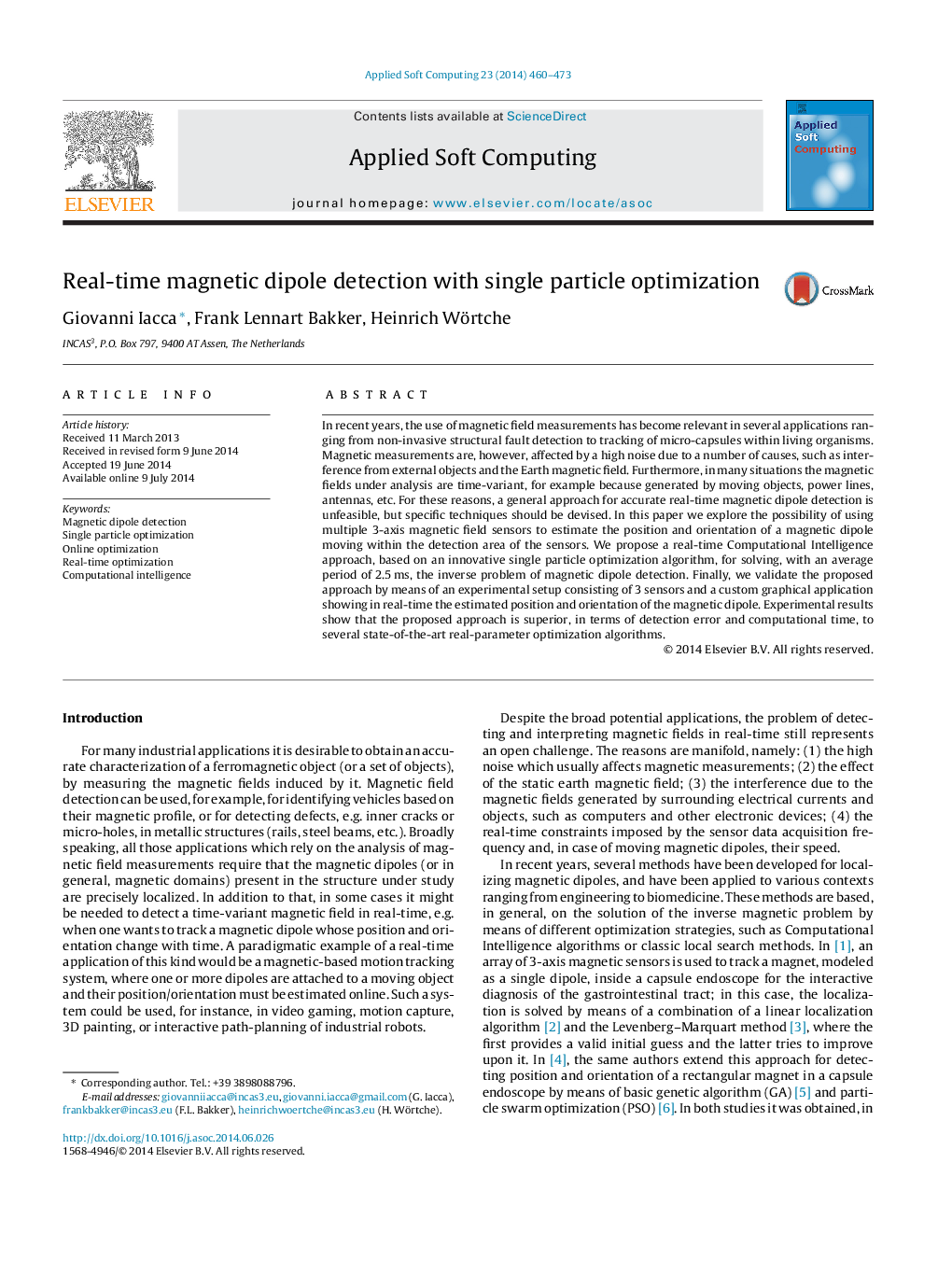| Article ID | Journal | Published Year | Pages | File Type |
|---|---|---|---|---|
| 495427 | Applied Soft Computing | 2014 | 14 Pages |
•We propose a novel single particle algorithm to detect in real-time a moving dipole.•We validate the approach by means of an experimental setup consisting of 3 sensors.•A custom GUI shows in real-time the estimated position and orientation of the dipole.•The proposed approach is faster and more robust than state-of-the-art methods.
In recent years, the use of magnetic field measurements has become relevant in several applications ranging from non-invasive structural fault detection to tracking of micro-capsules within living organisms. Magnetic measurements are, however, affected by a high noise due to a number of causes, such as interference from external objects and the Earth magnetic field. Furthermore, in many situations the magnetic fields under analysis are time-variant, for example because generated by moving objects, power lines, antennas, etc. For these reasons, a general approach for accurate real-time magnetic dipole detection is unfeasible, but specific techniques should be devised. In this paper we explore the possibility of using multiple 3-axis magnetic field sensors to estimate the position and orientation of a magnetic dipole moving within the detection area of the sensors. We propose a real-time Computational Intelligence approach, based on an innovative single particle optimization algorithm, for solving, with an average period of 2.5 ms, the inverse problem of magnetic dipole detection. Finally, we validate the proposed approach by means of an experimental setup consisting of 3 sensors and a custom graphical application showing in real-time the estimated position and orientation of the magnetic dipole. Experimental results show that the proposed approach is superior, in terms of detection error and computational time, to several state-of-the-art real-parameter optimization algorithms.
Graphical abstractFigure optionsDownload full-size imageDownload as PowerPoint slide
